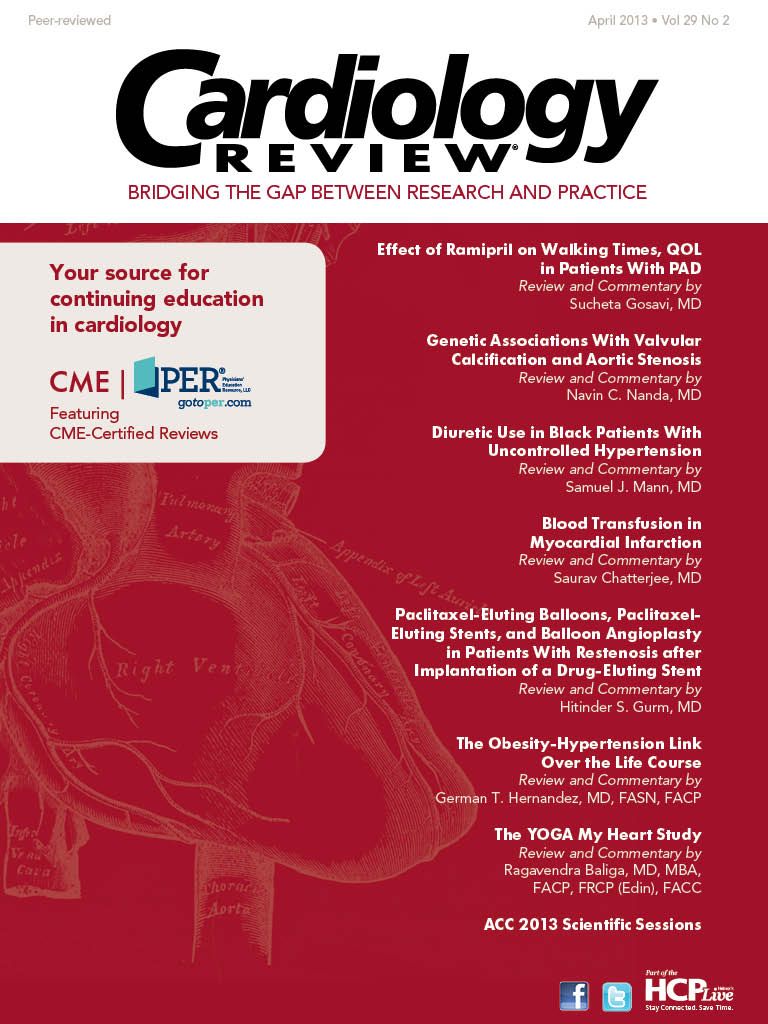What Your Patients Are Reading
Study Suggests Bald Men Are at Higher Risk for Heart Disease
A new study published in the British Medical Journal Open suggests that male pattern baldness is strongly linked to increased risk of coronary heart disease (CHD) (Medpage TODAY, April 3, 2013).

Japanese researchers analyzed 6 rigorously conducted studies (3 cohort and 3 case-control) of nearly 40,000 men published between 1993 and 2008; all of the studies controlled for complicating factors like age and smoking.
They found that mostly bald men in the cohort studies were 32% more likely to develop CHD over the follow-up period than those who weren’t balding (P = 0.08). The association remained for men under the age of 60 years. In the case-control studies, the adjusted relative risk for baldness was 1.70 for all participants (P = 0.03) and 1.84 for younger men (P = 0.0001). An assessment of results from 3 studies that assessed the degree of baldness using the modified Hamilton scale showed that only vertex baldness, but not frontal baldness, was significantly associated with an increased risk of CHD—and the link was dependent on the severity of baldness.
Extensive vertex baldness increased the risk of CHD by 48%, moderate vertex baldness increased it by 36%, and mild vertex baldness by 18%. There was no significant association between frontal baldness and CHD.
How is losing hair on the head associated with heart disease? “It has been suggested that classical coronary risk factors (eg, age, hypertension, dyslipidemia, and smoking) might influence both conditions, so that baldness is a marker of atherosclerosis,” the authors wrote. “It has also been postulated that baldness is linked to CHD by mechanisms such as hyperinsulinemia, chronic inflammation, and increased peripheral sensitivity to androgen.”
The theories, says American Heart Association spokesperson Nieca Goldberg, MD, are worth exploring. While it could be that baldness is just a sign of aging, she said, it makes sense to screen previously untested men who present with vertex baldness for CHD risk factors.
A New Culprit in Heart Disease: Gut Bacteria?
There is a new explanation of why red meat may contribute to heart disease. Cleveland Clinic researchers led by Stanley Hazen, MD, found that when carnitine, a chemical in red meat, is digested, a chemical called trimethylamine N-oxide (TMAO) is produced in the gut, and it increases plaque buildup in arteries (The New York Times, April 7, 2013). Carnitine is found in small amounts in fish and chicken and dairy products, but red meat is the major source. The study appears in the April 7 edition of Nature Medicine.

The researchers said TMAO levels predicted heart attack risk in humans, and that meat eaters normally had more TMAO in their blood and readily made TMAO after taking supplements with carnitine in them. They found that TMAO actually caused heart disease in mice. The findings also call into question the safety of energy drinks and supplements used in body building, which both contain carnitine.
Dr. Hazen’s research used more than 2500 blood samples from patients he was following because they were all at risk for heart disease. The researchers also tested the carnitine and TMAO levels of omnivores, vegetarians, and vegans to see if there were differences in the levels of these chemicals that varied with diet in these subjects. The investigators were surprised to see what a large impact vegan and vegetarian diets had on the formation of TMAO from carnitine. Subjects who did not eat red meat did not make TMAO in their gut even when they ate a steak or took carnitine supplements. Regular red meat eaters had a spike in TMAO levels within hours of eating. Hazen and colleagues did not expect to see such a dramatic difference.
The researchers gave meat eaters doses of antibiotics to wipe out almost all of their gut bacteria, after which they no longer had TMAO in their blood after eating red meat or taking carnitine pills.
The findings may lead to new treatments for heart disease and a test assessing heart disease risk by testing TMAO blood levels.
